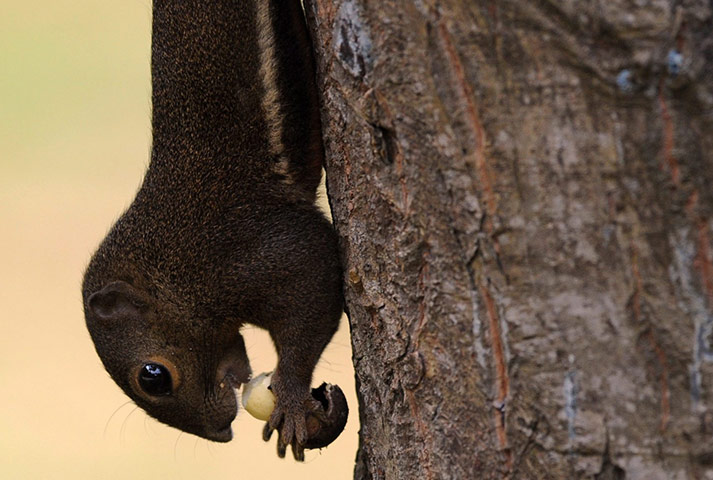TOP STORIES
Avian botulism reported in Lower Keys
The worst of the paralyzed birds suffering from avian botulism are the "pancakes," wildife center director Maya Totman describes. "The 'pancakes' lie helplessly in small pens, weakly moving their wings," said Totman, founder of Florida Keys Wildlife Rescue in the Lower Keys. "These have lost the ability to hold up their heads."
Totmam reported this week that a belted kingfisher, a pelican and other shorebirds found in Bahia Honda State Park or along Long Beach Road have symptoms of avian botulism.
"Avian botulism at the Florida Keys seems to have become an annual occurrence," Totman said. "This year's outbreak is ...earlier than usual. We need [the public's] help to watch out for these birds, if you are on the boat or walking shorelines," Totman said.
Staff at the Florida Keys Wild Bird Center in Key Largo and the Key West Wild Bird Center said they have not encountered botulism cases in recent months. "We would expect to see a few botulism cases after a high wind or rain even that stirs up the muck and mud," said Peggy Coontz, director of animal care at the Key West Wild Bird Center.
KeysNet - www.keysnet.com
01 Oct 2011
Location: Bahia Honda State Park, Florida, USA - Map It
>>> FULL ARTICLE
01 Oct 2011
Location: Bahia Honda State Park, Florida, USA - Map It

>>> FULL ARTICLE
Russian and US veterinarians collaborate to solve mysterious wild tiger deaths
A team of Russian veterinary colleagues and health experts from the Wildlife Conservation Society's Bronx Zoo are collaborating to understand how distemper -- a virus afflicting domestic dogs and many wildlife species -- may be a growing threat to Siberian (Amur) tigers.
… Last year a tigress "Galia" -- studied by WCS researchers for eight years in Sikhote-Alin Biosphere Reserve in the Russian Far East -- walked into the village of Terney. Galia displayed abnormal neurologic signs, seemingly unfazed by the new surrounding, appeared gaunt, and was searching for dogs as an easy meal. The tiger was shot by local police after several capture attempts failed. In November 2003, a similar event occurred when an otherwise healthy looking wild tigress walked into the village of Pokrovka in Khabarovski Krai. WCS staff working in the area immobilized the animal and worked with local Russian veterinarian Evgeny Slabe in treating the tiger, which later died in captivity. Samples for the diagnosis of distemper were collected only from these two animals.
Several other examples of tigers entering villages or stalling traffic on major roadways -- behavior possibly indicative of distemper -- have been reported in recent years.
"This exchange provides a foundation for elucidating potential disease threats to tigers in the Russian Far East," said Irina Korotkova of the Primorskaya Agricultural Academy. "Understanding the role of distemper in our wild Amur tiger population is vitally important."
Biologists study hurricanes’ impact on wildlife
Biologists who study birds couldn’t believe what they were seeing at their research lab in Williamsburg. Two pigeon-size shorebirds they tracked with tiny satellite transmitters were doing something no one had ever recorded. They were flying through 115-mph winds of a massive hurricane.
“We were holding our breath,” Fletcher Smith, a research biologist at the Center for Conservation Biology , said last week about the birds as they approached Hurricane Irene. “We really didn’t have a good idea of what birds are able to navigate through.”
It was an eye-opener. Meteorologists know just about all there is to know about hurricanes from decades of study. And public officials know how people should react when monster storms approach land. But there’s virtually no science showing how birds and other wildlife behave when a megastorm is coming and when it strikes. What game officials and biologists know about animal behavior in a storm is almost purely anecdotal.
OTHER WILDLIFE HEALTH RELATED NEWS
Photo courtesy of The Guardian's Week in Wildlife
 Real trouble could be ahead for Gulf fish, wildlife, researcher warns
Real trouble could be ahead for Gulf fish, wildlife, researcher warns- ProMed: Cytauxzoonosis, feline - USA: emerging
- Manipulated gatekeeper: How viruses find their way into the cell nucleus
- Morris Animal Foundation Commits $10 Million for Research
- World-First Discovery 'Can Help Save Coral Reefs' [Cited journal article HERE]
- 'Contagion' Connections: How Links Among Humans, Animals And The Environment May Be Spawning A New Class Of Infectious Diseases
- ProMed: White-nose syndrome, bats -North America [comment]
- USGS NWHC Bulletin on White Nose Syndrome
- White-nose syndrome taking bite out of bat populations
- Guest blog: cave and karst program director Cory Holliday discusses TNC’s artificial cave project [USFWS WNS in Bats Blog]
- [Update: Blackbird death spreads] [Usutu virus] [Location: Germany]
- [SEO / BirdLife mark dozens of birds with GPS to study their migration]




